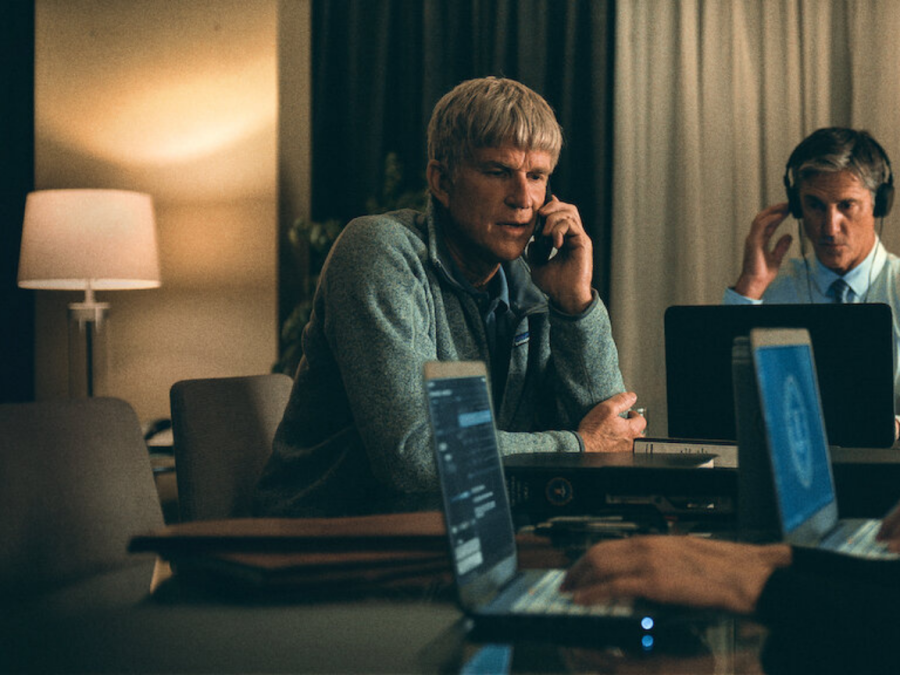‘College Admissions Scandal’ documentary shows real life events
Netflix’s “Operation Varsity Blues: The College Admissions Scandal” looks at the 2019 scandal and its investigation. The movie features reenactments and interviews, with Matthew Modine playing the role of the scandals organizer Rick Singer.
Chris Smith, director of “Fyre: The Greatest Party That Never Happened,” has done it again with the documentary “Operation Varsity Blues: The College Admissions Scandal” which was released on Netflix on March 17, 2021.
As many already know, this scandal was made public just over two years ago, on March 12, 2019.
Smith was able to portray the situations that took place in the Netflix documentary, although it lacked in the department of acting.
Some of these events include phone calls between some parents and Rick Singer that the FBI was able to discover, as well as how Singer had specific people that he hired to help arrange this wrongdoing.
This documentary follows the unjust acts that Singer was able to successfully do for seven years to help get children of rich parents, some of which were actors, politicians or simply famous and rich, and get them into the top universities in the United States.
This became problematic due to the fact that Singer had done this in a cryptic way, breaking laws and taking other deserving students’ spots from these universities.
With the main actors being Matthew Modine (“The Dark Knight Rises,” “Backtrace,” “Miss Virginia,”) who plays Rick Singer and Jillian Peterson (“The Watcher,” “High Fidelity,” “Baby Steps,”) who plays the lead FBI agent, the rest of the actors are supporting characters, who play the parents that got caught up in this scandal.
Modine does a good job playing the orchestrator of misconduct, Singer. Throughout the documentary, Modine plays Singer with vivid expressions and does a good job showing the manipulation in the events that actually took place.
Something that Modine did that made this film seem real was showing the manipulative and controlling side that Singer has. Modine was able to show frustration when having to explain the plan to parents if they asked him what the plan was more than once.
Not only this, but some of the facial expressions Modine did added to the overall tone of the Netflix documentary.
On the other hand, Peterson’s acting seemed a tad bit novice. Peterson shows what it was like to be on the inside scoop of a case for the FBI, although her acting could have used a little bit of work in scenes where she was the main focus.
Rather than acting surprised and shocked after listening to the phone calls between some parents and Singer, Peterson could have shown different emotions such as anger.
By showing her anger, she could have emphasized the point that this was nothing but a scandal, and how nothing about this was right.
When it comes to the supporting characters, in other words, the characters that were playing real individuals that got caught up in the admissions scandal, their acting was forced and ingenuine.
For example, one of the supporting characters Josh Stamberg (“Afternoon Delight,” “Legion,” “The Loudest Voice,”) who plays Bill McGlashan, could have done a better job playing McGlashan if he didn’t overdo the acting while on a phone call with Singer.
Because Stamberg overdid the acting, it made the overall acting of the supporting characters feel too forced and that they lacked experience.
Another supporting character, Jeff Rector (“Bad President,” “Sunrise in Heaven,” “The Revenant,”) who plays Devin Sloane could have also done a more decent job playing Sloane if his concerned look wasn’t so obvious.
It most definitely took away from the documentary and made me focus on their acting, rather than the facts within the film itself.
Despite the acting, the most enjoyable part has to be how factually accurate it is, along with the film techniques used to display it all.
Rather than just interviewing someone to make it a participatory documentary, there were actual court documents shown, most of which had highlighted or circled words to emphasize the wrongdoings in this scandal.
This is also a common theme in several different documentaries that many directors use to add to the viewing, and it 100% added to Smith’s newest Netflix venture.
Adding actual facts to any documentary of course allows logos to enter the picture which helps build credibility to convince the audience.
Smith did a really good job incorporating this technique throughout the documentary, but the acting department could have been better if some of the actors were more experienced.
After watching this documentary, I would definitely recommend this film to anyone who is interested in watching it, because while some actors could use a little more work, the facts shown throughout the movie made it worth watching. Smith was able to portray the behind the scenes of what went down in the college admissions scandal which allows the audience to get the inside scoop of the issues that took place from 2011 to 2018.

